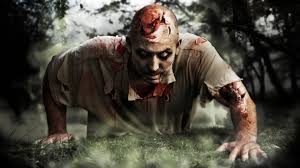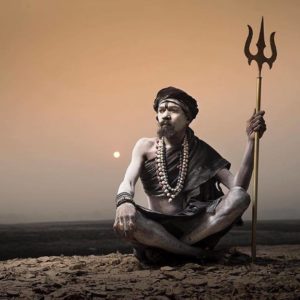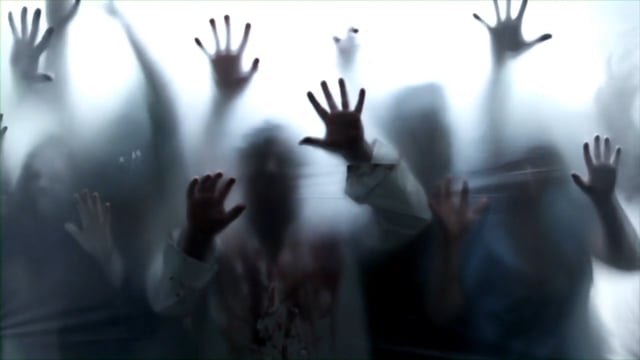The concept of zombies, or reanimated corpses with no brain power and a virus with the ability to spread faster than gossip has been with the world since 1932, though now the concept of “voodoo zombie”, which was basically a mindless slave who was drugged and followed the orders of the person who drugged them, seems like a prepubescent phase from which the genre has done a spectacular work of growing out. Today, zombies have spread from the big screens to become a household infestation, with franchises such as Resident Evil and Dead Rising acting as a catalyst to the whole thing. India, for the most part has been a little slow in catching up to it, with “Go Goa Gone” being marketed as Bollywood’s first “Zom-Com” and being intercepted as India’s FIRST zombie movie. Fact of the matter is, that this movie is Bollywood’s SECOND attempt at making a zombie movie, and that too a comedy of sorts.
 Given how certain demographics enjoyed it, and the overall verdict was that the masses do want another one, but something more intense, with better characters and with a little more emphasis on common sense than most zombie movies do; it still has not happened yet. Why is it that no successful attempt has been made at this genre by Indian film makers since 2013? Why have movies such as “Rock the Shaadi” which was a movie of this genre, despite what the name suggests, starring Abhay Deol and Genelia D’Souza been so furiously buried and forgotten that the masses never got wind of it?
Given how certain demographics enjoyed it, and the overall verdict was that the masses do want another one, but something more intense, with better characters and with a little more emphasis on common sense than most zombie movies do; it still has not happened yet. Why is it that no successful attempt has been made at this genre by Indian film makers since 2013? Why have movies such as “Rock the Shaadi” which was a movie of this genre, despite what the name suggests, starring Abhay Deol and Genelia D’Souza been so furiously buried and forgotten that the masses never got wind of it?
The answer is not what the reader might have expected.

There are three possible theories, the first and simplest one being that it is easier for filmmakers to work with what they already have. Considering how a large section of the population of India is rural and has little to no knowledge of zombies, working on the concept of bringing the dead back to life and having them attack everyone and increasing their numbers would, for the most part, go straight over their heads as compared to a movie filled with explosions, celebrities saving people and scantily clad women dancing between fat, drunk men. Sadly, the latter would be better received by the masses when compared to a story which makes the viewer think about the consequences of events which blur the lines of morality and what qualifies as human.
 Secondly, Indian culture does not have anything remotely similar to zombies. Granted, there are “aghori sadhus” who indulge in ritualistic cannibalism, but they, too have an interesting philosophy behind their actions. Furthermore, since Hindus are in majority here- and cremation is how the deceased are given a proper farewell, the concept somewhat dies right there. How would the dead rise again if they are nothing more than – pardon the bluntness – ashes?
Secondly, Indian culture does not have anything remotely similar to zombies. Granted, there are “aghori sadhus” who indulge in ritualistic cannibalism, but they, too have an interesting philosophy behind their actions. Furthermore, since Hindus are in majority here- and cremation is how the deceased are given a proper farewell, the concept somewhat dies right there. How would the dead rise again if they are nothing more than – pardon the bluntness – ashes?
Lastly, another explanation as to why this has not happened yet could be because of the age gap. The filmmakers of the past generation are still going strong and bringing to the audiences what they want, whereas the new breed has attempted several times to branch out and explore new avenues of the industry. The perfect examples of this would be the recent movie “Mukti Bhawan” directed by Subhashish Bhutiani, Devashish Makhija’s “Ajji” and Rahul Dahiya’s “G Kutta Se”.
The slow shift in the preferences of the masses is visible, if barely so. The upcoming youth wishes to have topics which are often avoided altogether to be discussed, such as death, what happens after it, and what would happen if it could be delayed, of reversed. In an age where almost every answer is a keystroke away, the fact that questions such as these are treated as if they never existed seems foolish. These directors have fearlessly debuted their works by delving into erstwhile roads less traversed by, bringing deeper stories to the big screen with precision and perfection. Considering all the developments that have taken place, it would not be a far-fetched prediction that the next few years may see a zombie movie in the works.
It seems fitting to quote Matthew Patrick to conclude this article, the owner of the Youtube channel “Film Theory”.
“…But until then, remember. This is all just a theory.”

